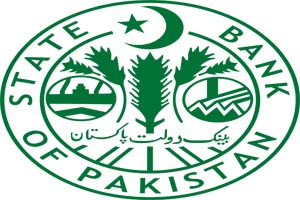
Current account deficit decline due to lower imports
The country’s current account deficit fell sharply by 47 percent during the first four months of this fiscal year (FY23) supported by lower import bills. The State Bank of Pakistan (SBP) reported that Pakistan posted a $2.821 billion current account deficit during July-Oct of FY23 against $5.305 billion in the same period of last fiscal year (FY22), depicting a decrease of $2.484 billion. The federal government and the SBP have taken a number of measures to curtail the imports and the sharp decline in the goods import has largely contributed to the lower current account deficit. Trade deficit shrank $2.7 billion to $20.6 billion in the first four months of FY23. Analysts said that the decline in the current account deficit will help save the depleting foreign exchange reserves of the country. Favorable movement in commodity prices in the international market and continuing import controls will help keep the deficit lower in coming months, they added. In order to maintain the forex reserves of the country at a sufficient level, the government is making efforts to curtail the import bill. These measures have helped contain the CAD, however, there is need for increasing the inflows of home remittances and exports to maintain the current trend of CAD, they said.
|
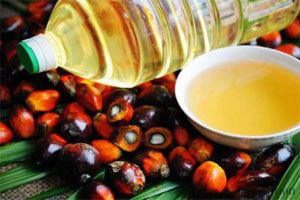
Red-taping imported oilseeds worth millions of dollars stuck at port
Imported oilseeds critical to Pakistan’s food security worth hundreds of millions of dollars are currently stuck at Port Qasim in Karachi pending the issuance of a certificate from the ministry of climate change. The APSEA (All Pakistan Solvent Extractors’ Association) patron-in-chief, Shehzad Ali Khan while briefing the National Assembly Standing Committee on National Food Security meeting, said that they are importing oil seed and its powder used in poultry feed. “We are importing soyabean seeds since 2015, he said.” Currently, the two shipments at Port Qasim are worth $100 million while at least five more vessels with seeds worth $300 million more are on their way. It is worth noting that the seeds have already been paid for, which means the hold-up will not affect the country exporting but will affect the supply of these seeds within Pakistan, and may eventually have an impact on oil prices. The requirement for a certificate from the climate change ministry had been introduced four years ago, and importers had applied for the certificates back then. Because GMOs and the introduction of seeds into agriculture falls under environmental protection and is a key element of the country’s biosafety, the ministry of climate change is supposed to have oversight over such imports. However, issuance of the certificates fell prey to bureaucratic red-taping and an arrangement was made on a temporary basis to continue the import of oilseeds until the certificates could be issued. This year, however, it seems the ministry has decided to finally implement the requirement. According to both the importers and industry associations, the requirement has never been implemented before, and that the application has been submitted to the ministry for more than four years. “Stopping the consignment without prior notice or intimation are posting huge losses to the importers. “We are paying thousands of dollars as demurrages for the past 28 days. Neither the consignments are being released nor the certificate is being issued to resolve the issue,” he added.
|
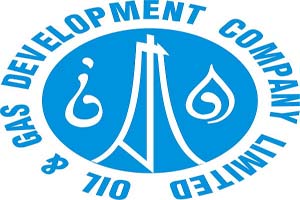
Govt plans to deregulate POL products’ market by 2027
The government has planned to fully deregulate its petroleum products market by 2027 after the country’s oil refineries make necessary technical upgradation in 2026, according to the draft of the upcoming Pakistan Oil Refining Policy. The Oil and Gas Regulatory Authority (Ogra) is in a process of consultation with oil marketing companies and oil refineries. Petroleum product rates are currently determined by the government that fortnightly revisits them to keep them consistent with the price fluctuations in the international market. Full deregulation till 2027 will be finalized in consultation with all the stakeholders. According to the draft policy, Pakistani oil refineries are required to complete the upgradation process by December 31, 2026. The deregulation will allow OMCs to set the prices themselves, based on the quality of fuel, the location and other value-added services.
|

Delegation to visit Russia for talks on oil
A delegation led by State Minister for Petroleum Musadik Malik will fly to Russia to discuss an agreement for import of oil at cheap price, a move that will help country save dollars and tackle skyrocketing petroleum prices in the country. Finance Minister Ishaq Dar revealed it in an interview, expressing a hope that tour will be successful. He also hoped that Pakistan would succeed in inking the agreement on favourable terms. Earlier this month, the country’s finance minister said that the US could not stop Pakistan from purchasing the Russian oils.
|

KIBOR hits all-time high of 16.81 percent
The Karachi interbank offered rate (KIBOR), a gauge of what banks charge each other to borrow rupee, hits a record high, as the money market was surprised by the State Bank’s decisions to raise interest rates by 100 basis points. KIBOR went up by 91 basis points to 16.81 percent, which is an all-time high. On 25th November, the State Bank of Pakistan (SBP) hiked the policy rate to 16 percent, surging to its highest level since 1999. The major rationale for this decision was soaring inflationary pressures. Rising prices are posing a serious challenge to policymakers. The SBP now expects inflation to average around 21-23 percent this fiscal year. With the consumer price index rising 26.6 percent year-on-year in October, Pakistan has been grappling with escalating inflation. The strong inflation numbers are mostly due to increase in energy tariffs and hike in food prices. Analysts said the lending rates adjusted accordingly to the increase in the policy rate. “For now only a 100bps increase has been incorporated in the yields but there is uncertainty in the market,” said an analyst.
|
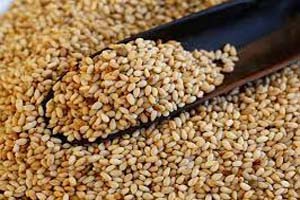
Sesame seed exports to China surge 50%
Pakistan’s sesame seed exports to China surged to $59.09 million in the first nine months of current calendar year, showing a growth of 50% year-on-year, according to data of the General Administration of Customs of People’s Republic of China (GACC). Data received by Pakistan from the GACC showed that China imported 39,533.855 tons of sesame seeds, an increase of 22% by volume, worth $59.09 million while last year in the same period it imported 32,487 tons worth $39.44 million. The national oilseed enhancement programme was launched in Punjab and then at the federal level, which helped farmers to export their crops. These are fast cash and well-paid crops. “There are two big advantages of the Chinese market; first the price is good as compared to the domestic market. Second, the market is very big, if you get any order, mostly it is very difficult for one exporter to meet the order,” he stated.
|
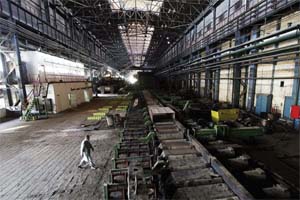
Steel sector sees 40% decline
The local steel industry has witnessed a contraction of around 40% the recent quarter due to the floods. many mills had recently shut down operations due to the high cost of scrap accompanied by other economic challenges. International scrap prices have increased by about 20% to $640 per tonne in 4QFY22.
|
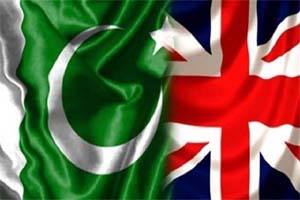
Pakistan out of UK’s ‘high-risk countries’ list
The United Kingdom has removed Pakistan from its ‘high-risk third countries’ list through a statutory instrument, effectively meaning the UK foreign office recognises the progress Pakistan has made to be removed from FATF’s grey list. A notification by the Foreign, Commonwealth and Development Office on Monday marked this development, saying the UK recognizes Pakistan’s efforts to improve money laundering and terror financing curbs. Foreign Minister Bilawal Bhutto-Zardari hailed the development on Twitter, saying it was “good news”. The list includes those countries that the UK deems pose risks due to unsatisfactory money laundering and terror financing controls.
|

Pakistan among seven states to get climate disaster funding
Pakistan and six other nations facing climate risks called ‘pathfinder countries’ will be the first recipients of ‘Global Shield’ funding, it was announced at the COP27 summit in Egypt. Bangladesh, Costa Rica, Fiji, Ghana, the Philippines and Senegal were identified as the other recipients of the package by the Vulnerable 20 Group of Finance Ministers (V20) of 58 climate-vulnerable economies and the Group of Seven (G7). The ‘Global Shield’ initiative for pre-arranged financial support has been designed to be quickly deployed in times of climate disasters. According to the joint press release of V20, G7 and the German Ministry of Economic Cooperation and Development, the Global Shield will start its implementation immediately after COP27. Germany is providing some 170 million euros as seed contribution, of which 84m euros are core funding to the Global Shield and 85.5m euros for related climate risk finance instruments. Further pledges of core funding to the Global Shield include 35m Danish kroner (about 4.7m euros) from Denmark, 10m euros from Ireland, 7m US dollars from Canada, and 20m euros from France. Initial contributions include around 170m euros from other countries. Further contributions by donors are expected to materialise soon.
|
|

© 2022 Alpine Marine Services Private Limited
all rights reserved
|
|
|